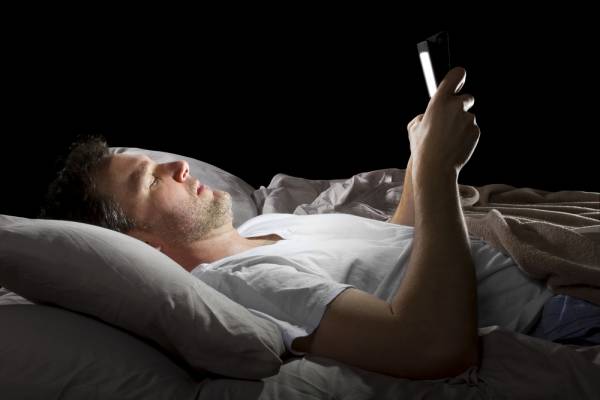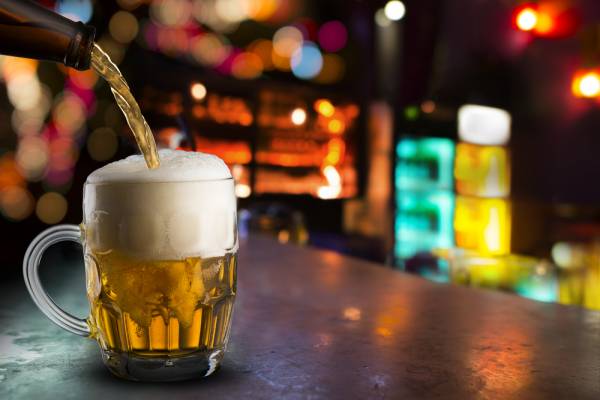It’s 4:45am and the alarm goes off. It’s time to go to the gym. But wait, I didn’t get to bed until 11:00 and the kiddo got up in the middle of the night because she had a bad dream. How am I going to get through my workout and get through my day of work?
This scenario is one many of us face. A lack of sleep will burden many of us from time to time, regardless of how hard we try to chase a solid eight hours. Work obligations, children, or just a running list of responsibilities are all things that can keep us from getting a good amount of slumber.
What shall we do to remedy this tiresome issue? Let’s figure it out.
Causes for Sleep Deprivation
According to a research article by Sleep Health: Journal of the National Sleep Foundation, poor sleep and lack of sleep can be linked to many chronic conditions such as neurological issues, cardiac health, and endocrine health, as well as to rheumatoid or oncologic conditions.
The article specifically noted that improving your sleep, along with making other healthy lifestyle choices, can lead to improvement in any chronic conditions. Who wouldn’t want that? Of course, if you have other health related issues disrupting your rest, consulting your physician would be wise.
“Employing these ideas, all or one, could be worth a try to get you on track and soothe self-imposed or situational sleep deprivation.“
For my physician-cleared fellow gym rats, there is good news – while sleep deprivation can adversely affect the processing of new information, any automatic movements or habitual processes remarkably remain intact.2 That means your seven-minute AMRAP burpees might feel suckier because your sleep was terrible, but most likely you’ll maintain your average score.
Keep in mind that heading into what could be a terrible night of rest can be avoided, or at least smoothed a bit, by some simple things anyone can easily do to ensure their best shot at getting a solid five…. or six…. blissful hours.
Keep Dark
According to The Sleep Journal, bedside light may result in less restful sleep. Their study noted that sleeping with unnecessary light exposure can cause shallow sleep and more frequent arousals from sleep to a waking state. The article went on to explain that the effect of this light on the brain is a lessened depth of sleep and stability of sleep.

Sleep Tip: I don’t know about you, but I definitely need to get the deepest sleep I can – and fast. Your best bet is to keep it dark. Turn your nightlights off, block windows, shut the blinds, and for Pete’s sake, keep that mobile phone from flashing with notifications. (Maybe even leave it in the living room? Crazy, I know.)
Keep Cool
Flinders University School of Psychology in Australia researched the interaction between body temperature and insomnia. They concluded that symptoms of insomnia can be linked to an increase in body core temperature. I know at my house, when the seven-year-old bursts in the room reporting a nightmare, I am suddenly awake and my body temperature shoots up. The National Sleep Foundation’s website takes this a bit further and suggests that those who have trouble resting try different temperatures for the bedroom, somewhere around 65 degrees.
I certainly know this to be true – my cup of coffee is priority number one when I stumble into the kitchen each morning.
Sleep Tip: Everyone is different, but we can all agree that no one sleeps well when the bedroom is 95 degrees. Keeping the room cooler, or at least being aware of the room temperature, will probably help when it comes to getting the rest we need.
Lay Off the Booze
According to a US News article on sleep deprivation and recovery, too much alcohol before bed can produce lighter sleep and more frequent nighttime awakenings. As a result, the brain doesn’t get the deeper sleep it needs (probably desperately needs). The drinks might be fun on Friday night, but missing out on that deep sleep can leave you foggy and unrested.
Sleep Tip: In my experience, a glass of wine before bed definitely makes me sleepy, but I don’t sleep nearly as well as if I avoid it. So, instead, I have a cup of non-caffeinated tea or a small glass of water.

Caffeine to Clear the Sleepy Head
Caffeine is a powerful and effective stimulant for the majority of us. The American Academy of Sleep Medicine’s report on sleep deprivation cites caffeine as the most commonly ingested stimulant.
I certainly know this to be true – my cup of coffee is priority number one when I stumble into the kitchen each morning. But what can it do for true lack of sleep due to insomnia or outside factors? The website explains that caffeine can provide improved alertness and overall performance in doses of 75 to 150 mg after “acute sleep restriction.” For most of us, “acute sleep restriction” is putting it mildly.
Sleep Tip: The academy does warn that too frequent use of caffeine can lead to tolerance and withdrawal effects if not used in moderation. Guilty as charged.
The Power Nap
The American Academy of Sleep Medicine’s statement on sleep deprivation goes on to note that extra rest prior to a known period of sleep deprivation can help some of the negative side effects of a lack of sleep. Alertness can be increased with what they call a “prophylactic nap.”
“Poor sleep and lack of sleep can be linked to many chronic conditions such as neurological issues, cardiac health, and endocrine health[.]”
Sleep Tip: The statement notes the overall best combination to battle sleep deprivation, especially a chronic case, is the above listed dose of caffeine following a nap. They suggest the beneficial effects may be additive and may encourage improved alertness over a longer period of time than one or the other alone.
Anything Is Better Than Nothing
Employing these ideas, all or one, could be worth a try to get you on track and soothe self-imposed or situational sleep deprivation. You’ll have so much more energy at the gym to suffer through your burpees and insure that you won’t face-plant on your desktop at work. You’re already tired, so what could a nap and a small cup of coffee hurt?
Check out these related articles:
- 5 Tips for Better Sleep and a Healthier Mind and Body
- 9 All-Natural Tips for Better Sleep
- How Sleep Deprivation Affects Athletic Performance
- What’s New On Pulse Beat Fit Today
References:
1. Cho RC, Joo EY, Koo DL, Hong SB, Let there be no light: the effect of bedside light on sleep quality and background electroencephalographic rhythms, Sleep Health (2013), https://www.sciencedirect.com/science/article/pii/S1389945713011350. Accessed on 2/16/15.
2. Grandner MA, Malhotra A, Sleep as a vital sign: why medical practitioners need to routinely ask their patients about sleep, Sleep Health (2015), https://dx.doi.org/10.1016/j.sleh.2014.12.011. Accessed on 2/17/15.
3. Kotz D, Sleep deprived? Here’s how to recover (2010), https://health.usnews.com/health-news/managing-your-healthcare/sleep/articles/2010/08/04/sleep-deprived-heres-how-to-recover. Accessed on 2/17/15.
4. Krystal AD, Schopler B, Kobbe S, Williams C, Rakatondrainibe H, et al. (2013) The relationship of sleep with temperature and metabolic rate in a hibernating primate. PLoS ONE 8(9): e69914, https://journals.plos.org/plosone/article?id=10.1371/journal.pone.0069914. Accessed on 2/17/15.
5. Maddox WT, Glass BD, Wolosin SM, Savarie ZR, Bowen C, Matthews MD, Schnyer DM. The effects of sleep deprivation on information-integration categorization performance, SLEEP (2009); 32(11): 1439-1448, https://academic.oup.com/sleep/. Accessed on 2/16/15.
Photos courtesy of Shutterstock.






